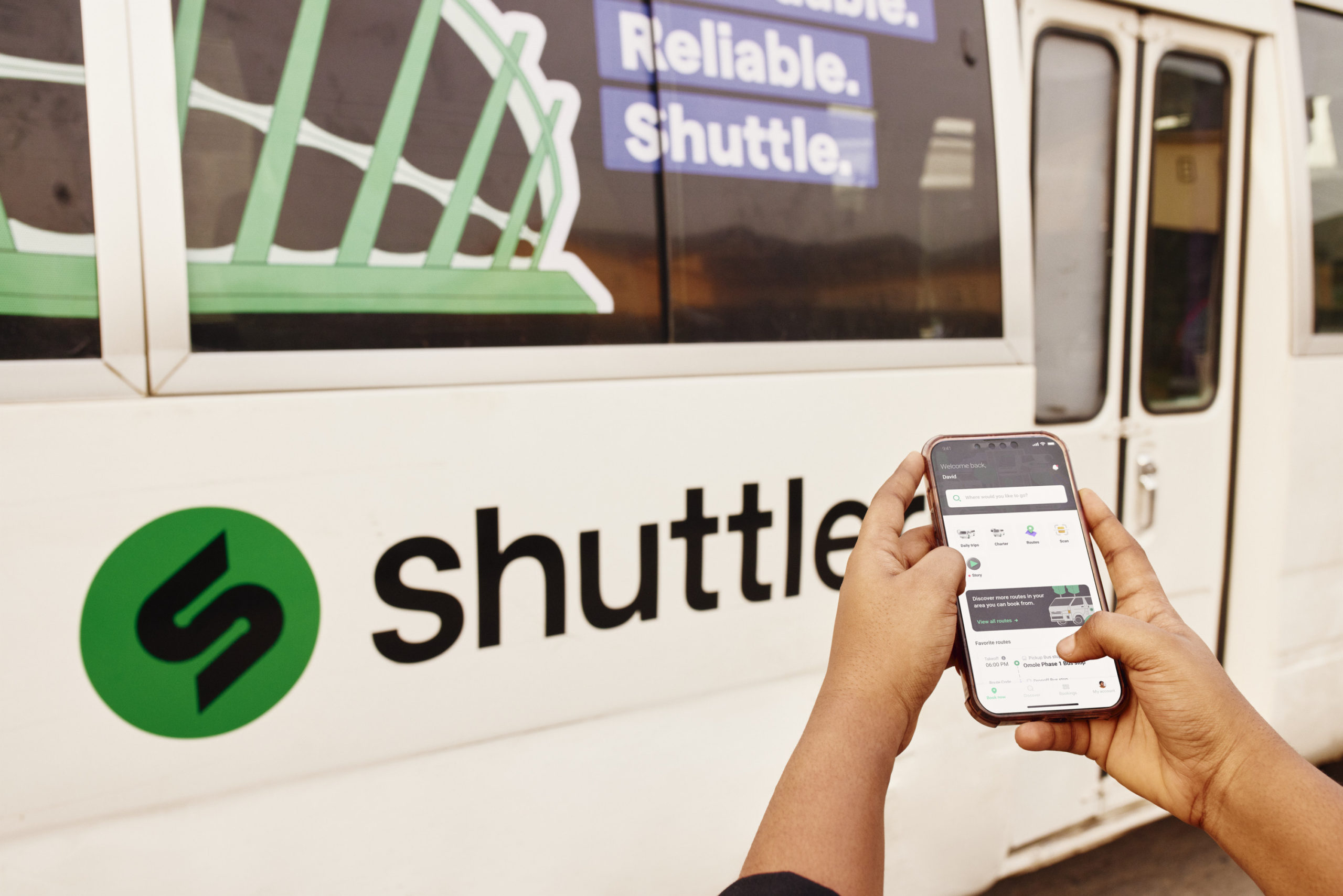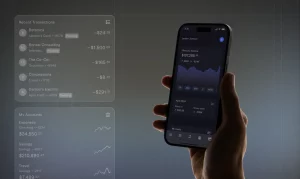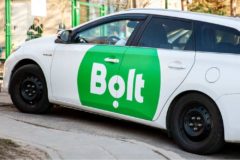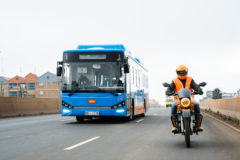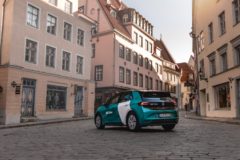Shuttlers, a shared mobility startup, is expanding its fleet to meet carpooling demand. While it mainly deploys buses, Shuttlers is also intensifying its recruitment of private cars to join its network of vehicles.
Nigerian shared-mobility sharing startup, Shuttlers is calling for more vehicle partners, including car owners. According to Shuttlers’ requirements, the cars must be a 2007 model or later, while the Hiaces and coaster buses must have air conditioning. Shuttlers operates a ride-sharing service powered by an app that lets users book seats on vehicles headed in their direction. The new cars Shuttlers is looking to add to its fleet will be assigned to new and existing routes. Using the app, customers can find and join these scheduled shuttles.
Carpooling, the concept of sharing your car with other passengers on the same route as you, isn’t new. In Lagos, it’s common to see private drivers en route to work picking up passengers heading in the same direction. On some routes, gig drivers with Uber and Bolt sometimes pick up passengers, mimicking the practices of traditional public transport services. For car owners, carpooling is a way to recoup some of their fuel costs. While offline carpooling doesn’t need an app, it’s limited and may need you to wait longer than expected to find a driver with the same route as you.
Shuttlers has found popularity with the Lagos working crowd who often live far away from their offices. Some employers arrange for Shuttler bus to transport their workers to and from the office exclusively. For workers whose offices don’t offer staff buses, Shuttlers is an unofficial staff bus, allowing them to pick their routes, and preferred seats, and commute in comfort. In a city that’s often chaotic, that comfort makes all the difference.
Yet, some people will argue that while it’s relatively easy to get people to share a staff bus, carpooling is a more difficult proposition. Digitising carpooling has proven to be difficult by the limited success of companies like Hytch, Ridebliss, and GoMyWay which have at different times attempted it. But Shuttlers’s popularity with the office-going crowd may prove to be the secret sauce.
The company’s founder Damilola Olokesusi told TechCabal that the company is redesigning its app’s interface to increase the visibility of its more diverse car options, affirming her confidence in this move. Yinka Aghedo, head of marketing at Shuttlers, also emphasized that the company and its customers are not unfamiliar with carpooling. “Although our flagship assets are buses, we have always complemented our existing fleet with cars and minivans,” he said. A look at the app shows that the app offers options to ride in a 6-seater sedan to some destinations. But TechCabal could not confirm if four-seater cars are currently on the app. Still, Yinka explained that “[We do use cars], and they are primarily required to be new vehicles [2007 models or newer] because we have observed that older cars tend to be less durable and more prone to breakdowns.”
If this car model requirement rings familiar, it is because one of the ride-hailing giants, Uber, also had a similar condition when it entered the Nigerian market. Increased competition and the need to onboard more drivers eventually forced the company to relax those rules. Recent blog posts from Bolt show that the rules have been relaxed to include cars from 1998 models and sedans from 2002 models or newer. Uber’s website says that vehicles from the 2000 model year are acceptable. The initial requirements were likely established for safety reasons, similar to Shuttlers’ approach. However, they may have been adjusted to expand the pool of available drivers, as older cars are more affordable and commonly used by the targeted drivers of these ride-hailing companies.
Regardless, Shuttlers remain confident in the superiority of its offering. Considering the state of Nigeria’s economy, there is no question of whether vehicle owners will be willing to partner with Shuttlers, mainly since it guarantees a predictable income.
Shuttlers’s business model
“People like to compare us to Uber and Bolt, but we operate very different business models,” Damilola told TechCabal during a call. She explained that, unlike Uber and Bolt, Shuttlers guarantees customers for its drivers as well as a predictable pay and route, unlike Uber and Bolt, where the drivers have to find customers by themselves and are left to guess how much they earn from a trip.
“The amount a driver can earn on a trip is determined by the car they are providing and is agreed upon during their onboarding to Shuttlers.” The app shows that a customer’s price to be driven to a particular stop varies with the kind of vehicle. Cars cost more than coasters do because cars have limited seats, and customers have to sit through fewer stops.” The drivers are assigned to a route, and Shuttlers ensures that the seats are filled with customers.” Damilola told TechCabal.







